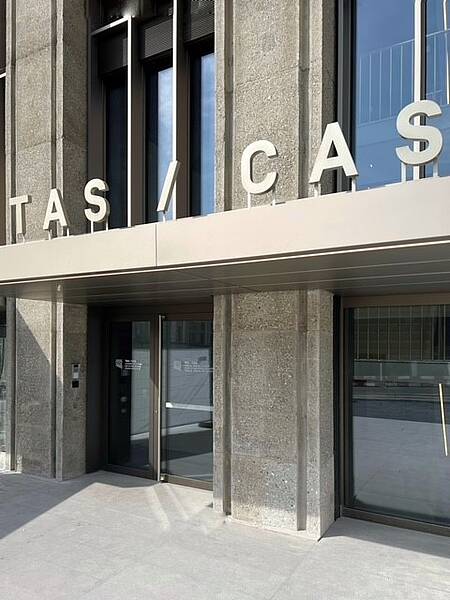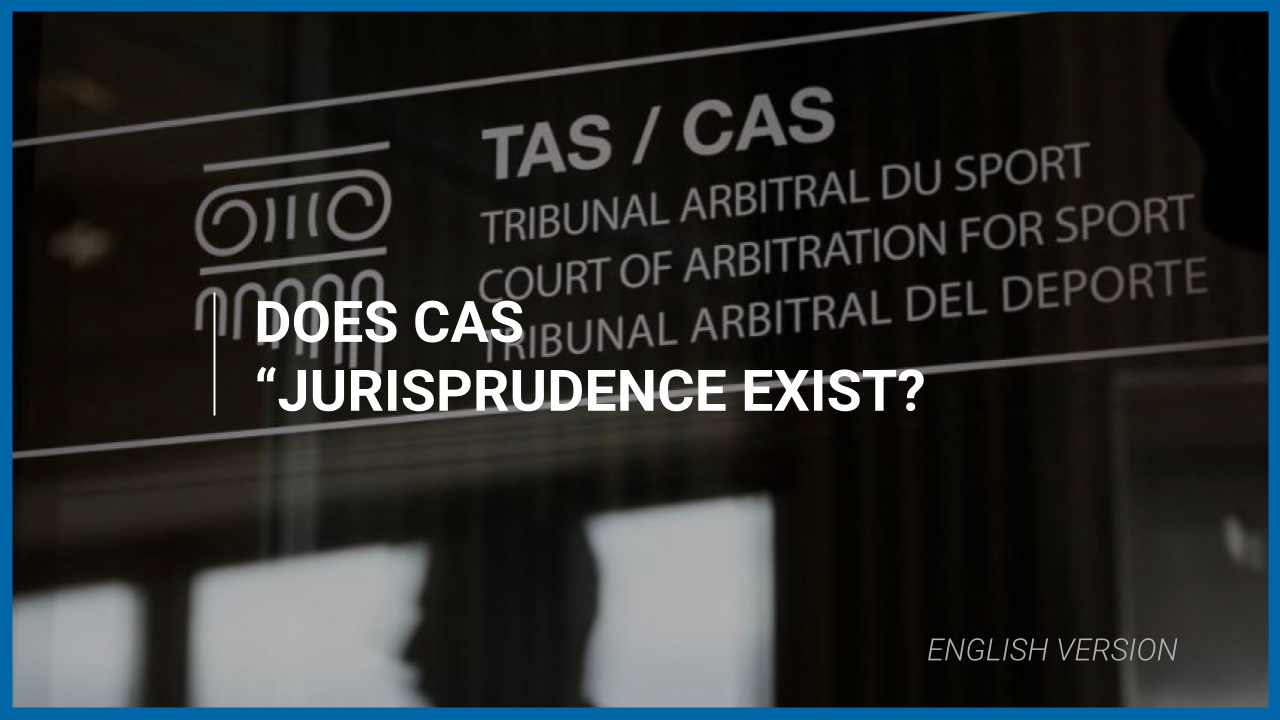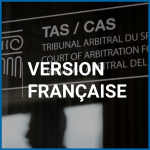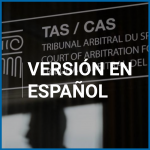Author: Luis Fernández
Lawyer and CAS arbitrator
Versions of the article availables in others languages:
Published and translated by the firm Winter – Dávila & Associés
Paris, 17 Avril 2023
In order to answer the question in the title, I will first discuss the difference between mandatory jurisprudence and persuasive precedent, and then focus on the specificity of the CAS, with reference to its independent panels and the jurisprudence of the Swiss Federal Tribunal.
Compulsory Jurisprudence vs. Persuasive Precedent
In countries following Roman civil law, case law has a referential character,[1] whereas in common law countries, judicial precedents[2] are binding. However, as we lawyers like to complicate things, we create exceptions to this rule. So, both in the USA there are laws that are not followed by jurisprudential precedent, and in civil systems there are judicial decisions that are binding. For example, in Venezuela the decisions of the Constitutional Chamber of the Supreme Court must be fully complied with by the rest of the country’s courts,[3] in Colombia there are so-called Unification Rulings that must also be complied with by all persons within the territory,[4] and I imagine that other countries will also have similar figures.
YOU CAN ALSO READ: The evidences before the Court of Arbitration for Sport (CAS)
In that context, I understand that the concept of “binding case law” is not foreign to those of us who work under civil law rules. However, I consider it important to differentiate between such binding case law and persuasive precedent. Because when we talk about binding case law we are talking about a precedent that has the same force as a law, i.e. it must be complied with or there are legal consequences. With persuasive precedent, on the other hand, there are no major consequences if it is not complied with.

The CAS applies precedents in a way that appears to apply case law.
One of the definitions given to the Lex Sportiva is that it is equivalent to the jurisprudence of the CAS. 5] Basically what is said is that the jurisprudence of the CAS acts as a kind of global legislation that unifies sports law transnationally, and as such it must keep a coherent line.
Now, if you look at the CAS Code of Arbitration, nowhere does it say that arbitrators have to respect the jurisprudential precedents. On the contrary, what it says is that panels must act in accordance with the law. This means that, in theory, each panel of CAS arbitrators is independent and does not have to follow any precedent. However, at the time of writing this article, I searched the CAS decisions database for the phrase “CAS Jurisprudence”, and found that 48% of the awards in the database use that phrase. That means, that in practice, at least half of the cases refer in some way to past case law. And this is without counting the other decisions that consider case law but do not specifically mention that phrase.
So, in theory, CAS arbitrators are not obliged to follow any case law, but in practice, CAS arbitrators follow case law as if it were a binding precedent to try to achieve that global unification of sports law.
But in addition, if the CAS case law is not enough, one has to consider additionally the case law of the Swiss Federal Tribunal,[6] which, like the case law of the CAS, has become a de facto binding case law.
LEGAL NOTICE: This article has been prepared for informational purposes only. It is not a substitute for legal advice directed to particular circumstances. You should not take or refrain from taking any legal action based on the information contained without first seeking professional, individualized advice based on your own circumstances. The hiring of a lawyer is an important decision that should not be based solely on advertisements.
If you want advice related to the subject of the
article do not hesitate to contact us!
(email: contact@wdassocies.com)










Leave A Comment